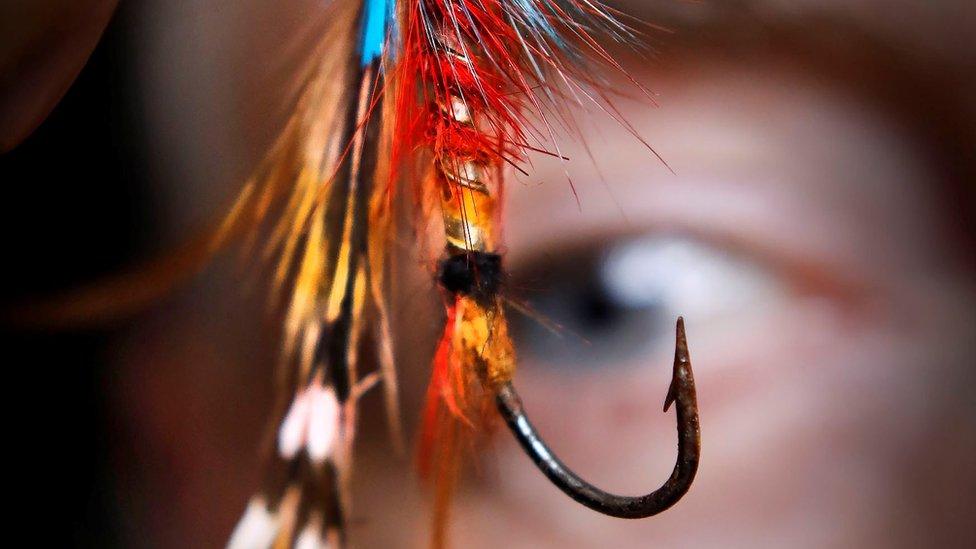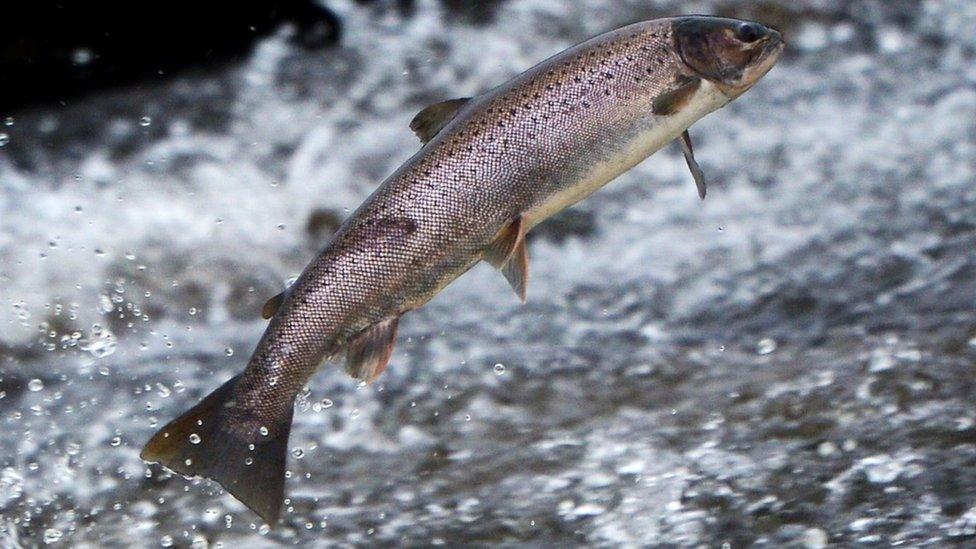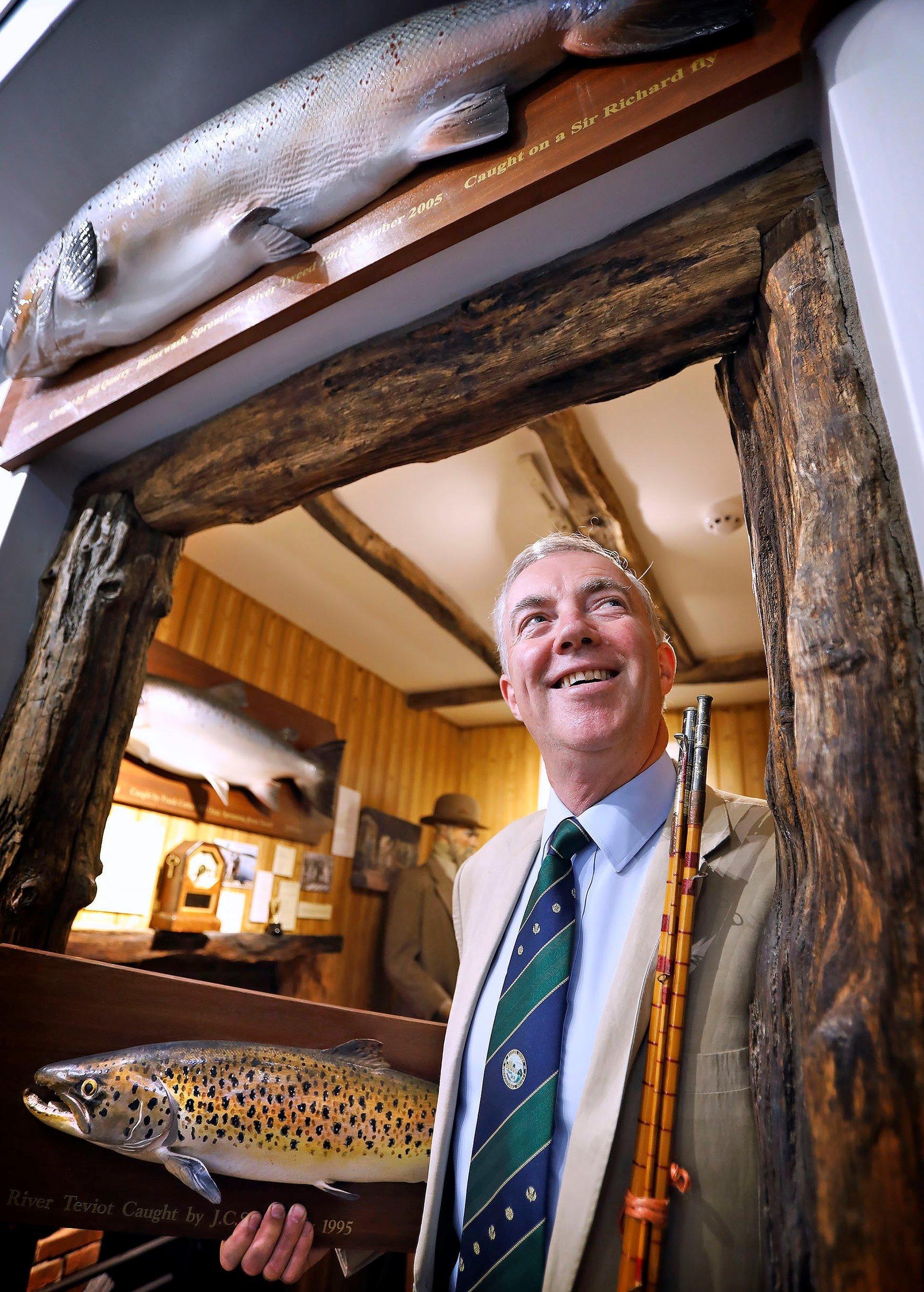Museum celebrating River Tweed salmon ready to leap into life
- Published

The museum includes thousands of items related to salmon fishing on the Tweed
A museum celebrating centuries of salmon fishing on the River Tweed is to open next month.
The facility in Kelso includes more than 2,000 objects exploring its history and heritage.
The pursuit has been estimated to be worth more than £20m to the economy in the Scottish Borders each year.
The techniques underlying modern rod and line salmon fishing are thought to have been developed on the river and date back to the mid-18th Century.

The pursuit has been estimated to be worth millions of pounds to the local economy
The new museum - backed by £35,000 from the Fallago Environment Fund - will open in Kelso Town Hall on 4 September.
It has been created by a team of volunteer salmon fishing experts and enthusiasts from the region.
Pride of place is given to a newly-commissioned carving of a 69.75lb (31kg) salmon caught on the Tweed by Earl Home in about 1735.
The museum hopes to attract more than 10,000 visitors a year from both the UK and abroad.

The museum hopes to attract thousands of visitors a year

It has received funding from Scottish Borders Council's communities fund and a number of private donations.
River Tweed Salmon Fishing Museum trustee, Bill Quarry said: "This museum is a celebration of a sport whose techniques were developed right here in the Borders and which are now used and enjoyed all over the world.
"As well as highlighting the fascinating history of rod and line salmon fishing, we hope that the museum will also help to raise awareness and appreciation of the river, its heritage and fragility and of the need for all of us to help to play our part in its conservation."